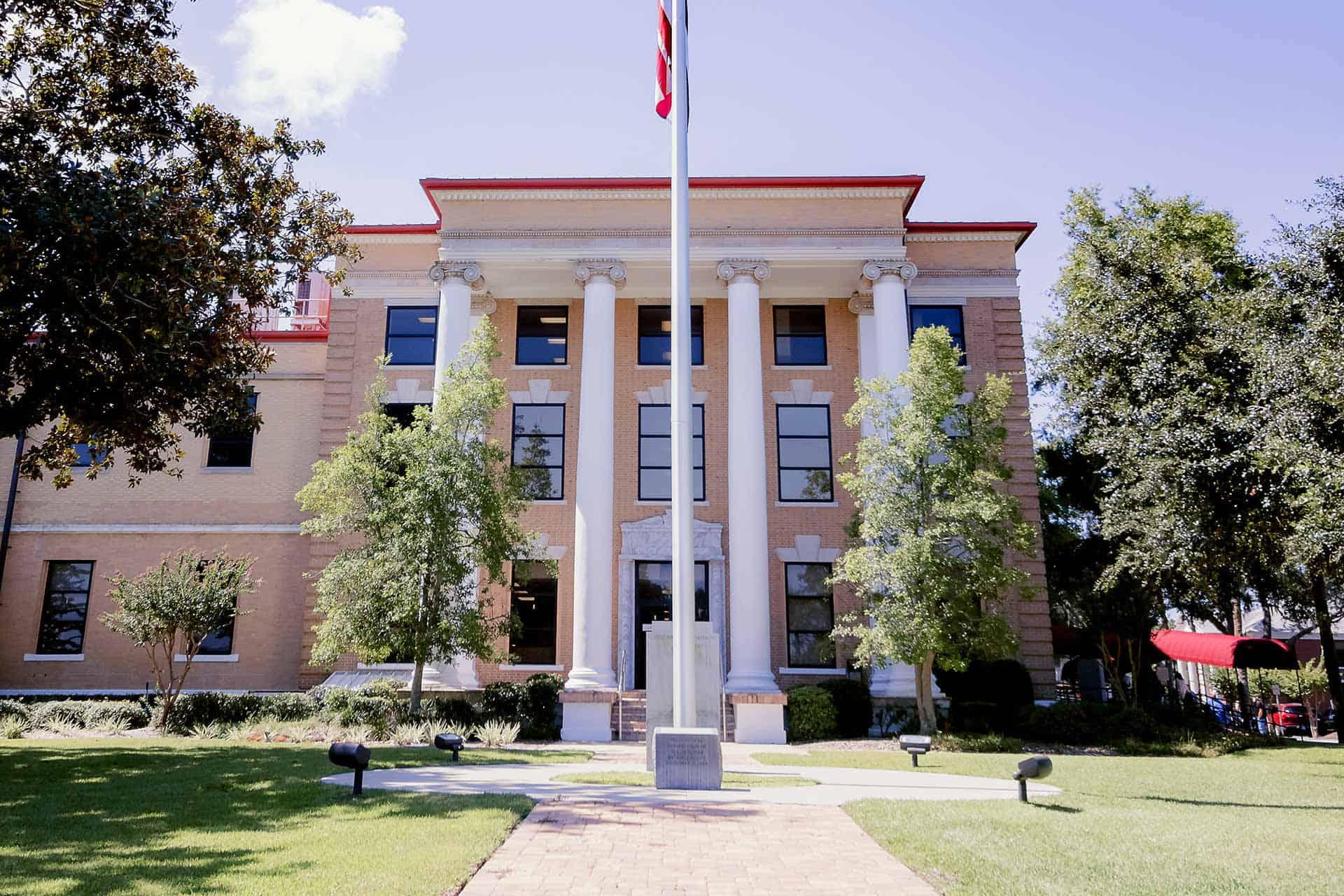A Defendant’s Right to Counsel
The Bay County Courthouse in Panama City, Florida, was the site of a 1963 landmark case that changed our nation’s court system. In Gideon v. Wainwright, the Supreme Court expanded civil rights when it ruled that the Constitution requires states to provide defense attorneys to criminal defendants charged with serious offenses who cannot afford lawyers themselves. The case began with the 1961 arrest of Clarence Earl Gideon, who was charged with breaking into a Panama City pool hall and stealing money from the vending machines. At trial, Gideon, who was unable to pay for a lawyer, requested that an attorney be appointed to represent him. He was told by the judge that the state of Florida provided attorneys only to indigent defendants charged with crimes that might result in the death penalty if they were found guilty. After he was sentenced to five years in prison, Gideon filed a habeas corpus petition (or petition for release from unjust imprisonment) with the Florida Supreme Court, claiming his conviction was unconstitutional because he lacked a defense attorney at trial. After the Florida Supreme Court denied his petition, Gideon appealed to the U.S. Supreme Court, which reviewed his case in 1963.
The Supreme Court agreed with Gideon. It ruled that the Constitution’s Sixth Amendment, which states “in all criminal prosecutions, the accused shall enjoy the right . . . to have the assistance of counsel for his defense,” gives defendants the right to counsel in criminal trials where the defendant is charged with a serious offense.

























